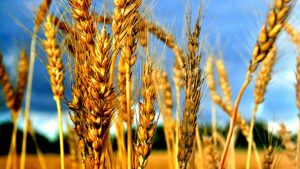Food sovereignty alliance from Latin America, Africa, and Asia approaches seven UN Special Rapporteurs for urgent intervention to block cultivation and trade of GM wheat HB4

On January 26, 2024, a submission was made in English, Spanish, and Portuguese to seven United Nations Special Rapporteurs dealing with human rights, the environment, food, toxic chemicals, water and sanitation, poverty, indigenous peoples, and health by a Global South collective of food sovereignty activists, social movements of peasants and indigenous peoples, and academics from Latin America, Africa, and Asia.
This collective is requesting urgent intervention by the United Nations (UN) Special Rapporteurs regarding genetically modified (GM) wheat HB4, purported to be drought-tolerant, developed by the Argentinian company Bioceres, and the agrotoxin glufosinate-ammonium.
This follows the approval in Argentina, Brazil, and Paraguay of the commercial production of this GM wheat variety and in South Africa, Colombia, Nigeria, New Zealand, and Indonesia, since 2020, suggesting a widespread failure in biosafety governance across the globe.
Based on the detailed concerns raised in our joint submission, the activists:
- Urge the governments of Argentina, Brazil, and Paraguay to suspend/revoke all authorisations for the commercial growing of GM HB4 wheat.
- Recommend the government of Paraguay revokes Resolution No. 556/2023 – through which transgenic HB4 wheat was approved – and reforms the genetically modified organism (GMO) regulatory framework, by way of an open, transparent participatory process, with particular emphasis on the need to protect the rights of indigenous people and peasant communities.
- Recommend the government of Argentina repeals Resolution 27/2022, which is based only on documentary information from Bioceres, the developer of the GM wheat variety, and institutes an appropriate ban on the cultivation of GM wheat in the country.
- Recommend that the National Biosafety Council in Brazil prohibits the commercial growing of GM wheat and suspends the decision by the National Technical Commission on Biosafety (CTNBio) to allow the importation of GM wheat grain and flour into the country and pushes for a review of the biosafety legislation by way of an open, transparent and democratic participatory process.
- Recommend the governments of Colombia, South Africa, Nigeria, and Indonesia instruct their biosafety authorities to review the GM wheat import approvals and initiate a moratorium on all approvals (product authorization, import, and environmental release) of GMOs.
The alliance has raised grave concerns regarding the planting and consumption of GM wheat, in that it violates several human rights, including the right to life and livelihoods; health; adequate food and food sovereignty; a balanced and pollution-free environment; access to land and territory; and the right to self-determination of peoples and local communities that survive off the environment and nature.
Further to these human rights violations, concerns have been raised about transgenic seeds generally, which are accompanied by technological packages that include harmful agrotoxins, over which a handful of multinational agrochemical companies hold a monopoly, under circumstances where farmers and millions of hectares of land are captive in a highly concentrated market.
According to the alliance, introducing GM wheat into agricultural and food systems is akin to putting out a fire with gasoline, since it will advance the industrial agriculture frontier into marginal areas and local communities. This will, in turn, put greater pressure on fragile ecosystems and encourage further deforestation, land enclosures, and land and resource grabs, undermining the right to self-determination of local and indigenous communities, especially in Brazil, Argentina, and Paraguay.
The group’s substantive submission addresses the fallacy promoted by Bioceres that GM wheat HB4 is either drought tolerant or a solution to climate change, pointing to misleading and unscientific claims and marketing, and commercial failures of transgenic traits purporting to confer drought tolerance, especially in Argentina and South Africa.
The submission also outlines in detail numerous regulatory failures including, for example, in Paraguay, where the decision-making process was conducted in complete secrecy, thereby violating basic constitutional rights regarding fair administrative justice. Importing countries also bypassed internationally recognised international biosafety standards by not requiring feeding studies or toxicity data, thereby failing to ensure, based on the precautionary principle, that the necessary health and safety risks associated with GM wheat had been assessed thoroughly and independently. This is particularly pertinent considering wheat being an important staple food in the Global South, consumed by hundreds of millions of people daily.
The submission also brings to the attention of the UN Special Rapporteurs that cultivation of this GM wheat, which is genetically engineered to withstand spraying of glufosinate-ammonium, will increase the use of this agrotoxin. Glufosinate is linked to a range of adverse health and environmental effects, including brain damage, developmental disability (autism), and developmental defects following paternal exposure, which has led to partial bans and restrictions in various countries.
“Any widespread rollout within Argentina, Brazil, and Paraguay will expose the public to a crop with minimal, if indeed any, toxicity data to ensure food safety. According to the network, this simply cannot be the precedent that we wish to set for the world’s most fundamental staple crop.
“Regulators are under an obligation to adopt a risk-averse and cautious approach to decision-making regarding GM approvals, in particular relating to novel GM traits and crop plants involving staple foods. Such an approach was not taken in any of the countries that have given GM wheat the green light. Considering the serious concerns raised in the submission and the extensive human rights violations outlined, it is incumbent upon the Special Rapporteurs to intervene, as a matter of urgency,” submitted the alliance.
